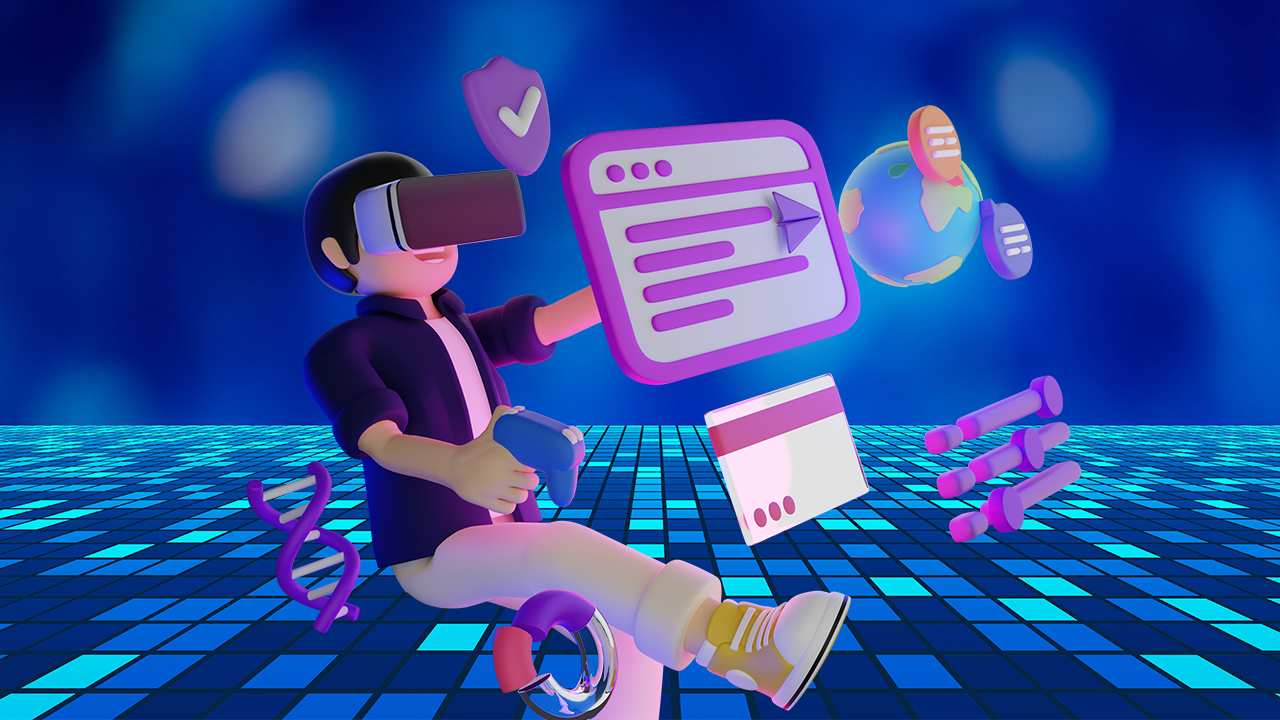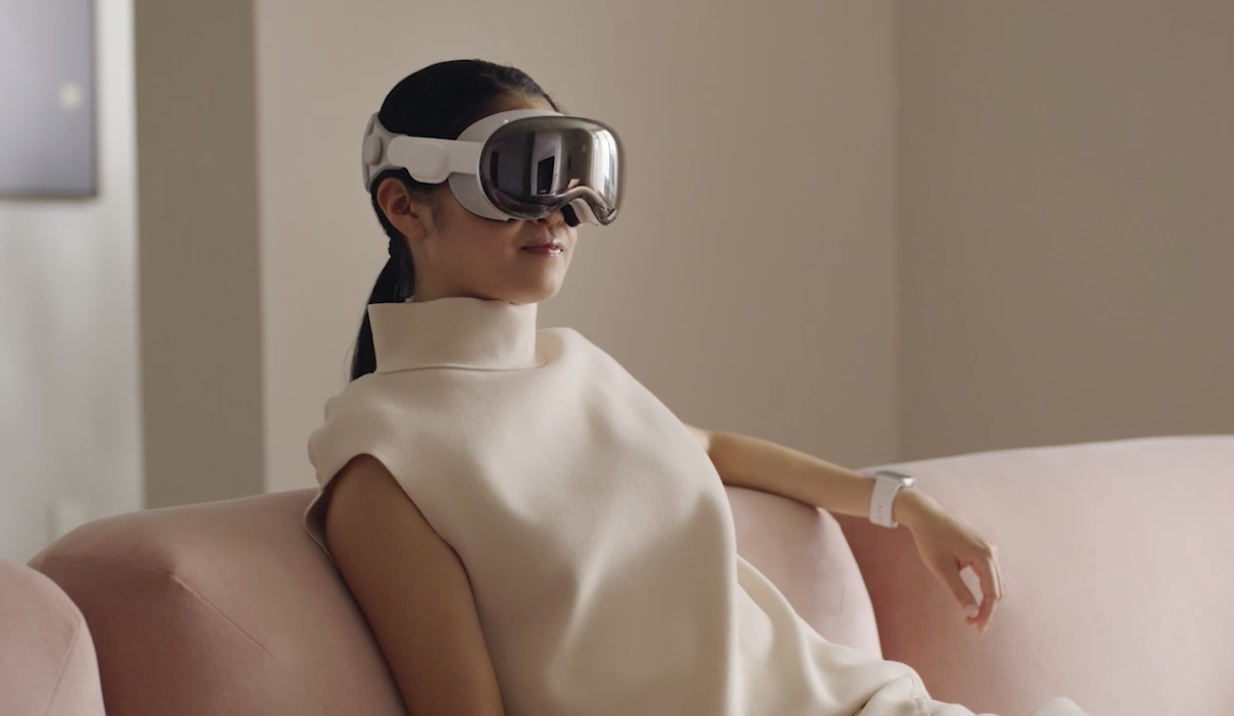Knowledge Base
23rd August 2022
3 things the metaverse will be, 3 it won't be and 3 it already is (written by a non-expert)
These days everyone is trying to claim the title of ‘metaverse expert’ but very few people are willing to admit that we actually don't know a huge amount of what it may look like. The metaverse is an idea, a suggestion of what the future of the internet could look like – but I don't think Tim Berners-Lee had envisioned me sending pictures of my breakfast to strangers when he first created the world wide web.
We can however make some educated guesses on a few factors: the first being that people will remain people and behave as they always have, and the second being that technology evolves over time and there are seldom-industry shattering revelations. With these in mind, let this non-expert share what they believe the metaverse will look like…
What the metaverse will be:
Integrated into daily life
People are creatures of habit and I genuinely believe that people have the core perception of what’s happening with tech the wrong way round – this isn't technology revolutionising people's lives, it’s revolutionising itself in order to be a bigger part of those lives. For this tech to work as people predict, it needs to have as small a barrier to entry as possible so it can fit into people's lives. That’s why I consider AR glasses as the prime example of this tech – providing the information and experiences with minimal obstructions to everyday life, all the while people want to use it. It should be seamless.
Productive
Much to the chagrin of every teenager, eventually the fun stops and the work begins. This isn't to say that this tech won't have games (it will) but real investment comes with productivity tools, and we are already seeing the beginning of these. VR teleconference tools like spatial are becoming more commonplace but the offering needs a little more to warrant companies buying into the idea at scale.
Accessible
I wrote on this not so long ago but I truly believe that one of the best uses for this tech will be to provide accessibility tools for those with disabilities within the confines of public behaviour. My hearing aid is pretty noticeable but if everyone is wearing AR glasses no one would know if I had subtitles on, and these tools benefit everyone – for example, instant translations would open up the world for tourism and immigration.

What the metaverse won’t be:
Owned by Meta (or anyone)
Zuck made a big flashy play for the metaverse, changes the company name and pledged Billions of dollars to the development of ‘The metaverse’. The problem with this is that lots of people have already been creating and using these spaces. Not only this, people use a wide range of services that are provided by an array of companies. This won't change and while users may shift, barring companies refusing to stay relevant, (R.I.P. Toys ‘R’ Us), people will stay brand loyal. Throughout history, there have always been underdogs and throughout the span of business, there are always independents that can hold their own. I believe this will be no different.
Like Ready Player One
Like I said before, the metaverse is an idea and an old one at that, we have all seen references to Ready Player One and Snow Crash both of which don’t exactly paint this idea in the best light – but then what do you expect of dystopian fiction? I don't believe that in my lifetime we will be climbing into goo pods and plugging into the Matrix.
Unavoidable
Many predictions involve the metaverse being as prevalent as oxygen and I'm sure that’s what some people want, and with tech like Musk’s Nuralink project in ‘development’ people are definitely working towards that potential. However, this will not be the norm – just look at the public’s reaction to Google Glass with wearers widely being called “glassholes”! And while this tech was arguably ahead of its time, I'm sure those users were glad they could take off the glasses and get some respite from the world at large. Information overload is very real and mental health specialists are becoming increasingly concerned with “doomscrolling” so I'm confident there would be considerable objections to having access to the internet beamed directly into people's brains 24/7.
What the metaverse already is:
Here
Lots of the early ‘metaverse’ concepts have been around social apps like VR Chat, Altspace, and Meta’s Horizon Worlds, and the race has been on to attract users largely through gamification, but an online game with millions of active concurrent users that can play and communicate with each other – does that sound familiar? MMOs have been around for decades with the largest among them having millions of paying users, with better graphics and much better games. And it isn't just this, you could make the case that Nintendo has already created an early Pokemon metaverse with the AR app Pokemon Go. These ideas have existed for a long time and they stem from the base human desire to socialise –I don't envision that going away for a long time, no matter how annoying your neighbours are.
Social
As a rule, people like people, and technology hasn't changed that. The internet started as a tool to share information, and then it became about communication. Similar but crucially different, and that difference is decidedly human. These games, apps and programs are all centred around that human desire to connect, and I don't see the metaverse deviating from that in any significant way.
Fun
VR was built on fun, and I think even if some companies try to shake that perception, it will always be a factor for those looking to adopt the technology. Whether it’s making exercise more fun by adding music and lightsabers or just adding interactive elements to virtual meeting platforms, these gamified elements will always be an attraction. It's okay to enjoy this immersive technology for what it is: a tool. Like computers and smartphones, people will use them however they want.
It’s safe to say that the metaverse will be a lot of things to a lot of people but it can't be all things to all people. At the end of the day it will be the same as always – people first.

After moving from town to town in the south of England, Niky found his way to Norwich and then to Infinite Form. Alongside studying Brand Communication at UCA he has busied himself with everything from consulting to being a children's entertainer. Niky spends most of his spare time playing & creating tabletop games. If you're especially unlucky you can also catch him doing stand-up comedy in the city.
More from the Knowledge Hub
Do you have a message you want to convey? A situation that needs simulating, or an audience that needs reaching? Whatever your challenge – we have the ideas, the experience, and the equipment to help.




